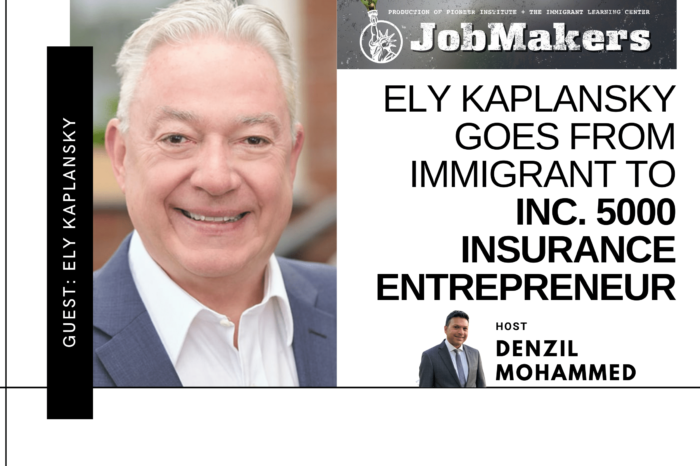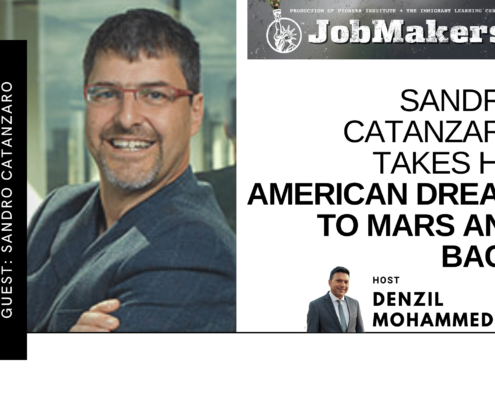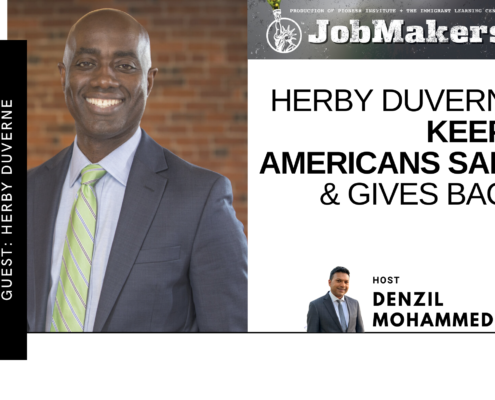Ely Kaplansky Goes from Immigrant to Inc. 5000 Insurance Entrepreneur
This week on JobMakers, host Denzil Mohammed talks with Ely Kaplansky, President & CEO of Kaplansky Insurance. Ely’s unconventional path to entrepreneurship included dropping out of high school and essentially taking the place of the insurance business where he got his start, when it was found that they were committing unethical practices. And since 1974, Ely has created hundreds of jobs in Massachusetts and beyond, with 85 employees in 15 offices across the state today. He has grown his business during the pandemic, with 37 acquisitions to date, such that Kaplansky Insurance was named to Inc. magazine’s “5000 Fastest-Growing Private Companies in America” list. Ely’s success is more than just the pride of having made it. His success fulfilled the dreams of his parents when they moved from Israel to America in 1955, with just the clothes on their backs and an aunt to take them in. Their journey began in the concentration camps of Germany, and Ely’s story is all about the opportunity and freedom America offers, as you’ll discover in this week’s JobMakers.
Guest:
 Ely Kaplansky, CIC, CPIA, LIA, is President & CEO of Kaplansky Insurance, a leading independent insurance brokerage that he founded in 1974, which now serves more than 35,000 clients across eastern and central Massachusetts following nearly 40 agency acquisitions over the years. The company serves individuals, families and businesses for all lines of insurance, and has received multiple Five Star and Best Practices awards. Mr. Kaplansky has served as Chair of the Massachusetts Association of Insurance Agents. A high school dropout, he is now a Certified Insurance Councilor (CIC), Certified Professional Insurance Agent (CPIA), and Licensed Insurance Advisor (LIA). The son of Holocaust survivors, Kaplansky moved from Israel to Massachusetts with his family when he was a child and has made greater Boston his home.
Ely Kaplansky, CIC, CPIA, LIA, is President & CEO of Kaplansky Insurance, a leading independent insurance brokerage that he founded in 1974, which now serves more than 35,000 clients across eastern and central Massachusetts following nearly 40 agency acquisitions over the years. The company serves individuals, families and businesses for all lines of insurance, and has received multiple Five Star and Best Practices awards. Mr. Kaplansky has served as Chair of the Massachusetts Association of Insurance Agents. A high school dropout, he is now a Certified Insurance Councilor (CIC), Certified Professional Insurance Agent (CPIA), and Licensed Insurance Advisor (LIA). The son of Holocaust survivors, Kaplansky moved from Israel to Massachusetts with his family when he was a child and has made greater Boston his home.
Get new episodes of JobMakers in your inbox!
Related Posts













